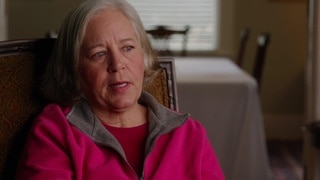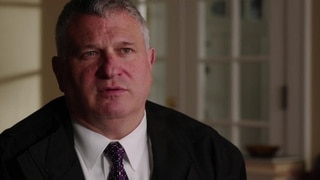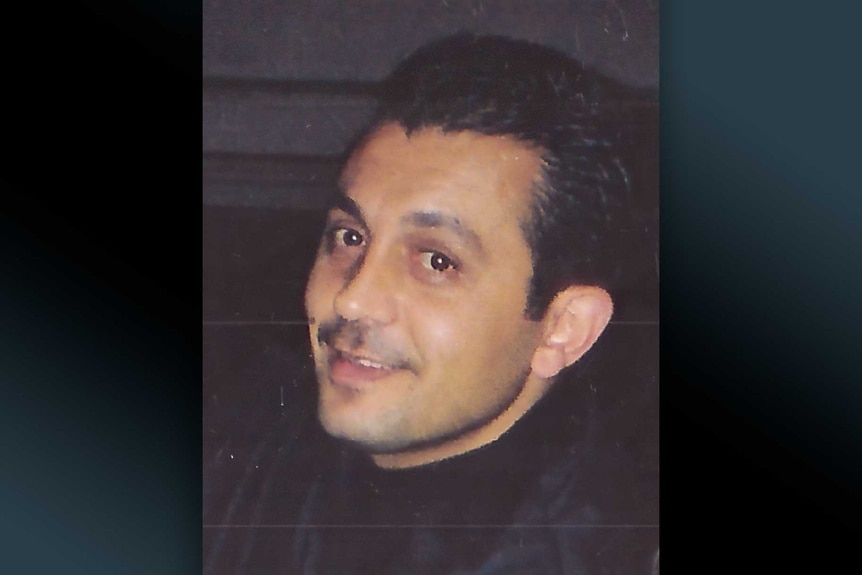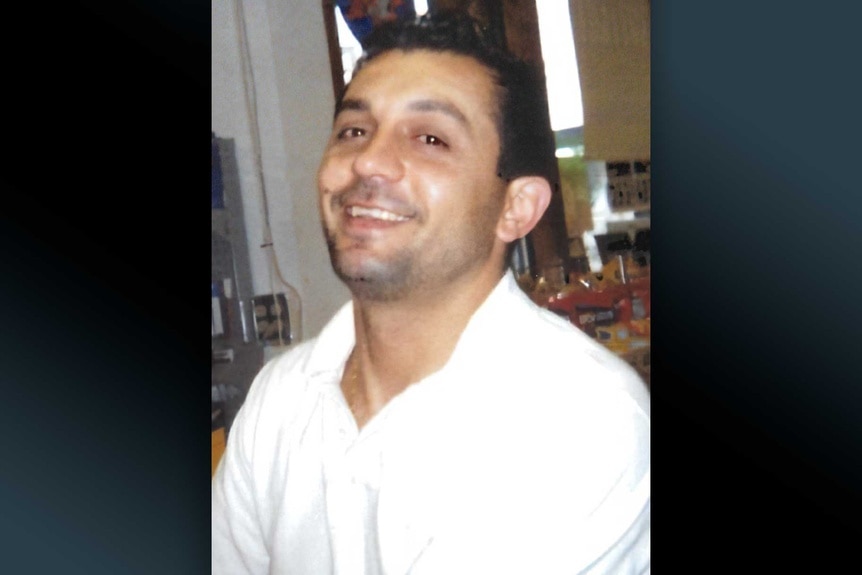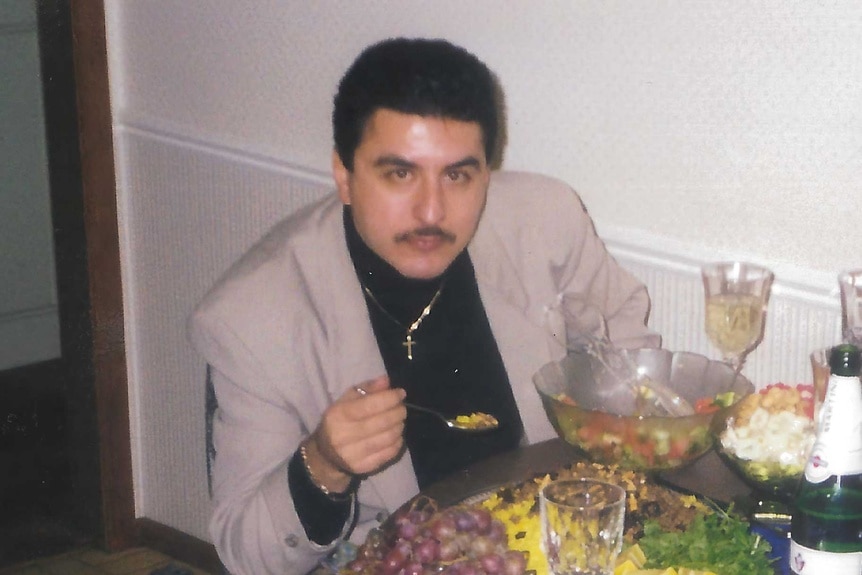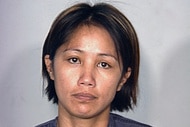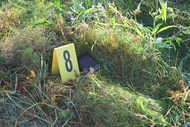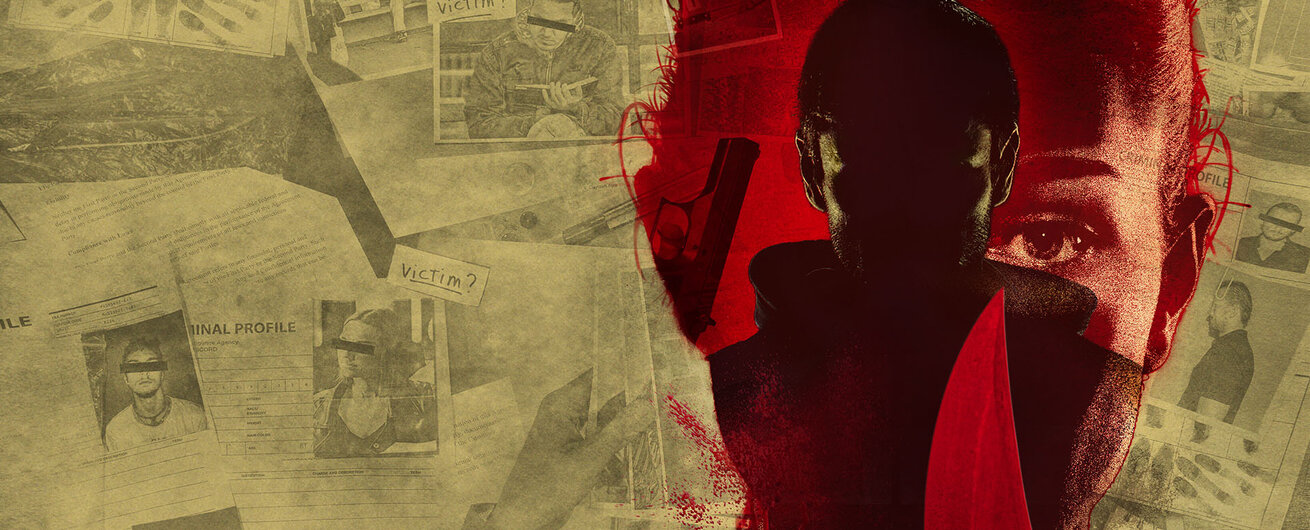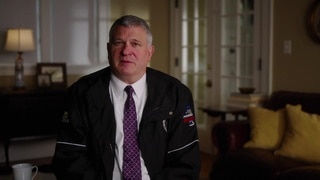Create a free profile to get unlimited access to exclusive videos, breaking news, sweepstakes, and more!
Michigan Man Fatally Shot Brother-In-Law After His Stash of $250,000 Vanished: "I Was Afraid"
A dispute over $250,000 going missing led to Najem Matti being shot five times and killed by a relative who said he fired to save his own life.
A 911 call sent shockwaves through the affluent Detroit suburb of Sterling Heights, Michigan, on January 23, 2009.
Salam "Sam" Zora told the dispatcher that he’d shot his brother-in-law, Najem Matti, 37, in self-defense.
First responders found Najem’s shirtless, bullet-riddled body face up on the floor in his house. The victim was dead at the scene.
“There were obvious gunshot wounds throughout his torso,” former Detroit Free Press reporter Amber Hunt told Kill or Be Killed, airing Saturdays at 9/8c p.m. on Oxygen.
Police learned that Sam and two of his brothers went to Najem’s house to confront him about missing money that belonged to Sam.
For more from Kill or Be Killed:
Man with History of Chilling Abuse Allegations Shot Dead on the Side of the Road
Man Fatally Shoots "Drunk" Friend After Night of Christmas Shopping, Then Claims Self-Defense
Grandmother Shot Grandson and Kept Firing During His Desperate 911 Call: "I'm Gonna Die"
The crime scene was processed. Five shell casings, along with a barbecue knife and fork near the victim’s body, were collected as evidence.
Police discovered that the shooter and victim were relatives in a close-knit family. As the first of the Zoras to arrive in the U.S. from Iraq, Sam established himself as the patriarch.
Police brought everyone at the scene into the precinct for questioning. That included Manal Matti — Najem’s wife and Sam’s sister — and her young children.
Sam Zora's missing $250,000 a focus of the case
Investigators learned that Najem struggled to find steady work. Sam, a businessman who ran a variety of stores, helped him and Manal out financially.
For 18 months, Najem and Manal and their kids lived in a rental property owned by Sam, free of charge.
Sam’s distrust of banks prompted him to use a shed on the property as a hiding place for cash, investigators discovered.
RELATED: How to Watch Oxygen's Kill or Be Killed, Which Explores Gripping Self-Defense Murder Cases
“He put it in this pickle bucket... buried beneath floorboards in the shed on his property,” said Hunt. Only Sam and Najem knew about the hidden stash, according to the shooter.
The money — around $250,000 — turned up missing on January 20, 2009. Sam suspected that Najem took the money. One reason was because he knew of its whereabouts. The other was because a new tenant called Sam and told him that Najem was spotted on the property.
Sam Zora "was angered by a relative stealing from him," prosecutor says
Detectives wondered if Sam’s self-defense claim was a cover story for murder. “It was evident that Mr. Zora was angered by a relative stealing from him, a relative that he had helped,” said prosecuting attorney Steven Kaplan.
On January 20, Sam confronted Najem, who denied taking any money. Najem said he’d swear to that in church and swear on a bible to that, according to case documents. But Najem never showed up to make that oath.
On January 23, Sam called his brothers, Pete and Mike, who’d previously known nothing about the money, to confront Najem.
“According to the Zora brothers, Najem approached Sam very aggressively,” said Hunt.
Najem tipped the scale at 220 pounds, had served in the Iraqi army, and was a butcher by trade. “He knows how to handle knives,” said Scott Zora, Sam’s other brother.
“He came charging at me,” Sam is heard telling police in a recorded conversation. “He knows I carry a gun... I was afraid he was going to kill me. That’s when I shot.”
The reason Sam carried a firearm is because he transported large sums of money between his businesses.
“He had been a licensed concealed pistol owner and carrier for at least 18 years,” said Dan Harold, Sam's personal defense attorney.
Harold added that Michigan is a “stand your ground state,” where laws let people protect themselves from a lethal threat, according to NBC News.
Police spoke with Najem Matti's wife and young son
Manal told police that she’d been in the garage and heard multiple gunshots. She asked her brother why he fired at Najem. “He said, ‘He pulled a knife,’” she said. Her account essentially confirmed ones by her brothers.
Police asked Sam why he confronted Najem directly instead of filing a police report. “Sam wanted to have this settled outside of law enforcement,” said Hunt.
Police questioned Sam “over and over and over again,” said Harold. “Every time, he circles back to that he was attacked and forced to act.”
RELATED: Las Vegas Performer Strangled and Cut Off Dancer's Legs Before Burying Her in Cement
Authorities questioned Manal and Najem’s children. Their 2-year-old daughter, Christina, was deemed too young to give a credible report.
Their son, Austin, 4, told police in a recorded interview that “there was fighting... My dad got a knife and then he got shooted.”
The boy’s account was clear: Najem attacked Sam before being shot, according to the child. Fifteen years later, Austin told Kill or Be Killed that it “was extremely hard for me to grow up without a father.”
Sam Zora charged with murder following autopsy
At this point, Kaplan decided to release the family, including Sam, without pressing charges. Two weeks later, the forensic team contacted Sterling Heights police.
There were a number of surprising findings. No fingerprints were found on the knife and fork at the scene, muddying the claim that Najem was holding them when he was shot. Could the utensils have been planted so Sam could claim self-defense?
The medical examiner’s report showed that Najem died as a result of sustaining five gunshot wounds to the torso. Three of the bullet wounds were in the back of the body.
“Najem was facing away when he was shot three times in the back,” said Hunt. “That’s not a good image when you're claiming self defense.”
In light of the new evidence, Sam was charged with first-degree murder, Kaplan told Kill or Be Killed. “The prosecutor’s theory is that Sam shot Najem and then staged the scene,” said Harold.
Carl Marlinga, a well-known Macomb County prosecutor-turned defense attorney, took the lead on Sam’s case.
Sam’s brothers were concerned about bias in the largely white community, according to Kill or Be Killed. Marlinga was confident he could assemble an impartial jury.
Marlinga also decided to not include the video of 4-year-old Austin’s testimony. The risk of what could occur if the boy was cross-examined on the stand was too great.
Sam Zora’s trial begins in September 2009
The trial began on September 15, 2009. Manal, caught in the middle between the shooter and the victim, her husband, did not attend.
Kaplan’s opening statements focused on “premeditated murder,” juror Dale Barr said. The defense emphasized that Sam acted in self-defense — that he had to shoot.
Jurors heard testimony about the autopsy report. The knife and fork were shown in the courtroom and said to have been found with no fingerprints on them.
RELATED: Clues Revealed for First Time in Murder of 27-Year-Old Singer Found Tied Up in Her Home
The Zora brothers testified as eyewitnesses and character witnesses for Sam. They told the court that Najem had gone for the knife and fork. The defense said that bullets could have entered Najem’s back because his body spun around being struck by the first bullet.
Sam testified that he didn’t act in a premeditated way but in a panic to save his life, the Macomb Daily reported in 2009.
Sam Zora found guilty of second-degree murder
There were several possible verdicts the jury could come to: guilty of first- or second-degree murder, guilty of voluntary manslaughter, or not guilty.
The jury delivered a verdict of guilty of second-degree murder. Sam was sentenced to serve 15 to 30 years in state prison for the second-degree murder charge, and another two years for a felony firearms charge, according to Michigan Department of Corrections records. He remains in prison to this day, records show.
Sam has sought to overturn his guilty verdict, the Macomb Daily reported in 2021.
The Michigan state Supreme Court decided in 2021 that it wouldn't reconsider Sam's case, stating in its order that he "has failed to meet the burden of establishing entitlement to relief” under the law, according to the Macomb Daily.
The missing money hasn't been found.
To find out more about the case, featured in the “Clash of Kin” episode, watch Kill or Be Killed, airing Saturdays at 9/8c p.m. on Oxygen.


